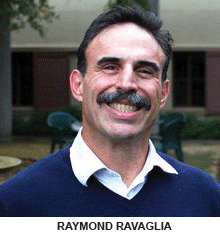 Dramatist, playwright and author George Bernard Shaw (1856-1950) famously wrote: “He who can, does. He who cannot, teaches.” Although this is harsh criticism of teachers, there’s some measure of wisdom in the barbed quip.
Dramatist, playwright and author George Bernard Shaw (1856-1950) famously wrote: “He who can, does. He who cannot, teaches.” Although this is harsh criticism of teachers, there’s some measure of wisdom in the barbed quip.
Typically, teacher development programmes tend to focus on enhancing pedagogy and classroom teaching skills, and developing trendy ‘21st century skills’ such as creativity and collaboration. Too often, teacher trainers forget that expert knowledge of a subject is as important as expert knowledge of how to teach. Teaching is, after all a process of interaction between teacher, student and subject matter. Effective teaching requires teachers to possess detailed subject matter knowledge intertwined with knowledge of pedagogy, curriculum, student behaviour, learning objectives and outcomes. Unfortunately, most teachers lack adequate subject matter knowledge (SMK) and curiously this lacuna is tolerated by most Indian schools.
However, although SMK is a necessary skill, per se it’s insufficient for a teacher. But conversely there’s no guarantee that a teacher with SMK will be effective because of the other intertwined pedagogical requisites of effective teaching. Sadly, the opportunities teachers have to self-learn are uneven and inadequate, as they are products of the same system. It is thus imperative that teachers stay ahead of their students by continual exposure to subject material which is deeper than what they are expected to teach. Without continuous learning, they run the risk of precocious students posing baffling questions which embarrass teachers and undermine their authority in the classroom.
Against this backdrop, how can school managements ensure teachers have the required SMK? How do they help teachers develop their SMK continually in a changing landscape of academic standards, teaching philosophies (such as problem-based learning), international curricula and enrichment programmes? How can they be helped to accurately and continually measure and benchmark their teachers’ SMK, to ascertain the degree of remedial support or advancement they need?
Before addressing these questions, it’s worth noting that student enrichment programmes incorporated into school curriculums improve student performance dramatically, and enable teachers to measure their progress. Therefore, a growing number of schools are exploring how to provide academic enrichment material and programmes to students and are benchmarking them not just against standard curricula but international norms as well. Is it possible to adopt a similar approach to developing the SMK of teachers?
A good SMK development programme incorporated into teachers’ daily regimen is the educational equivalent of an effective physical fitness programme. It should be woven into the professional lives of teachers throughout the academic year. It helps to continually measure teachers’ SMK, and enables use of analytics to fill gaps or advance teachers. The single most important feature of an SMK programme is that it is a rich bouquet of high-quality problem-solving questions and solutions which exposes teachers to a wide variety of nuanced concepts and principles in their prime subjects. This is entirely in keeping with the tenets of learning through problem-solving.
A new genre of platforms such as Edfinity offer student enrichment programmes and academic tournaments, and are becoming a gold standard due to their affiliation with pedigree academic institutions. It’s reassuring that they include SMK training courses in their service mix. Such platforms are unique because they bundle technology with world-class content pre-configured for immediate, digital distribution. In addition to offering packaged student enrichment and SMK training programmes and analytics, they are invaluable in enabling teachers to administer online tests, quizzes and assignments, auto-grading, and make daily assessments of students and their own progress.
A note of caution: Schools should be discerning in their choice of SMK professional development courses. Here’s a simple checklist for evaluating an SMK programme: (1) Is the programme offered on a technology platform that supports self-paced learning? (2) Does the programme provide for continuous measurement and feedback? (3) Does the course offer remedial support and advancement? (4) Does it provide for analytics and benchmarking? (5) Does the course include questions and problem-solving exercises authored by highly-reputed academic associations and/or educators? (6) Last, but not the least, does the organisation offering the course have an international pedigree and team? A negative answer to any of these questions is a warning sign.
If school managements can ensure that teachers are proficient in terms of SMK and confident in their ability to teach even gifted students, they can be confident about delivering superior education to their students. My message to quality-conscious schools is to adopt a proven programme approved by a pedigree organisation. Your teachers will soon discover that when it comes to effective teaching, subject matter knowledge truly matters.
(Raymond Ravaglia is founder of the Stanford University Online High School and former associate dean and director of Stanford Pre-Collegiate Studies)